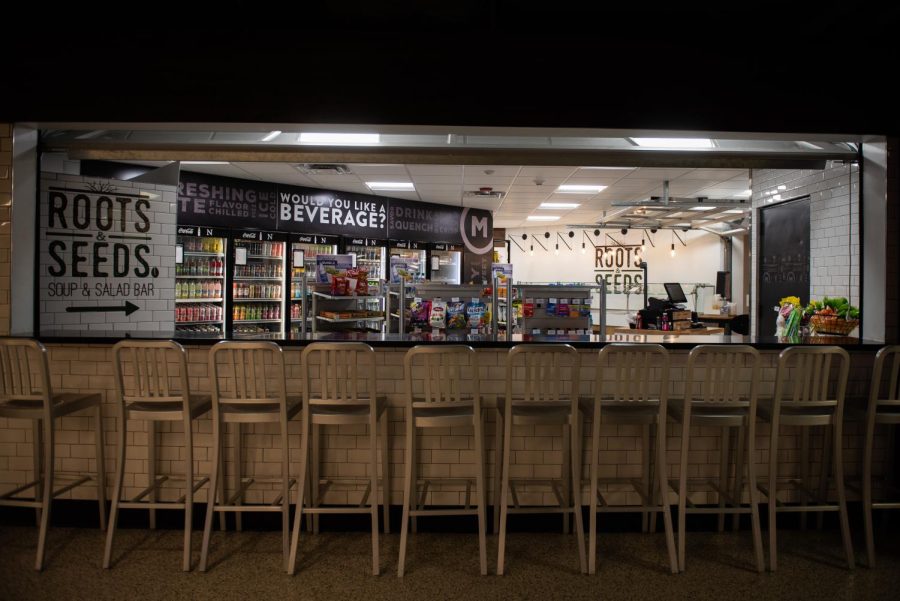Faculty, students say implementing LEDs on campus long overdue
Kimberly Espinosa/Daily Senior Staffer
Northwestern has plans to retrofit LED lighting on campus, but some faculty and students say the implementation should have happened sooner.
April 10, 2023
Though Northwestern received the ENERGY STAR Partner of the Year — Sustained Excellence Award from the U.S. Environmental Protection Agency and U.S. Department of Energy in March, environmental sciences Prof. Patricia Beddows said the University still has a long way to go.
She said NU’s energy consumption costs would be a fraction of what they currently are if the University converts to using LEDs rather than fluorescent lights.
According to the Department of Energy, LEDs are the most energy efficient lighting technology.
Beddows said transitioning NU’s lighting system to LEDs is an “easy fix” that would reduce energy waste and cut costs for the University within several months.
“We should not wait to get the brownie point for having an award or a certificate for doing what is fundamentally necessary and financially positive for the institution,” Beddows said. “LEDs are absolutely a necessary cost effective thing to do that we should have done 10 years ago.”
She added the increased lifespan of LEDs can create positive financial benefits, including fewer maintenance costs and replacements.
Implementing LED lights could also reduce costs because of their decreased energy consumption. Beddows said companies like McDonald’s have benefited from converting their lighting systems to LEDs.
“We don’t need to reinvent the wheel,” Beddows said. “Maybe Northwestern just needs to be more like McDonald’s. There is zero need to study this further.”
Beddows said NU should have installed cross campus LEDs years ago, given that the lights have been in the conversation about national sustainability practices for at least a decade.
Beginning in 2016, NU’s Chief Electrical Engineer Scott Hayworth led a project that replaced all exterior lighting on campus with LEDs. Since then, the University has not announced any updates to its lighting systems.
“The University needs to just get serious about it and hire a contractor,” Beddows said.
In an email to The Daily, University spokesperson Hilary Hurd Anyaso said NU is currently working with engineering services company Ameresco to implement LED retrofit projects in Main Library, the Technological Institute, Bobb Hall, select administrative spaces and multiple buildings on NU’s Chicago campus. She also said the University installs LED fixtures for all new construction and renovation.
A decade ago, a University efficiency-improvement project upgraded fixtures to T8 fluorescent lighting, improving the lighting system efficiency about 40%, according to Anyaso. LED technology was too new at the time, she said.
“Since that time, as the marketplace has evolved and technology has improved, the University has been making conversions to LED lighting more broadly,” Anyaso said.
Weinberg junior Bobby Yalam lived in Rogers House last year. The dorm received a LEED certification, the gold standard for sustainability achievement, in 2011.
Yalam said he wishes the University communicated more clearly about its sustainability initiatives. He added sustainability practices should be included in orientation so students can really understand how to live sustainably.
“It’d be great if there was a more direct, consistent way of getting information about sustainable practices out to us,” Yalam said.
Beddows said LED lights are a start in NU’s shift toward becoming a more sustainable University.
She advocates for several projects aiming to make NU a more environmentally conscious institution. Beddows said all roofs at NU should be painted white, so buildings can reject the sun’s heat. Since cooling systems are more costly and energy consuming than heating systems, the University would save energy and funds, she said.
“I do believe that Northwestern probably is moving in the direction to do this, but it is certainly uncomfortable that we have not done it some years ago,” Beddows said.
Email: KristenAxtman2025@u.northwestern.edu
Twitter: @KristenAxtman1
Related Stories:
— HowGood is your food? Northwestern Dining implements sustainability ratings
— Sustainability report shows improvement in waste reduction, energy conservation



